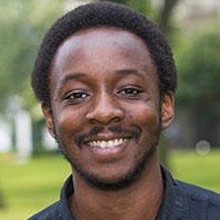The electrical activity patterns of brain circuits and the individual neurons that comprise these circuits are complex and nuanced, carrying information at varying resolutions of time and space. The impressive breadth of technology developed over the past 20 years to record neural activity is reflective of this diversity of temporal and spatial scales in neural dynamics.
Yet much mathematical and computer science work remains to be done in making sense of the data from neural activity recordings—in using it to learn how brains function and make decisions. The Ba lab is broadly interested in questions at the intersection of theory, computing and data, that have diverse applications that range from computational neuroscience, multimedia signal processing and network science.
We develop mathematical and computational tools that leverage the inherent structure in data from artificial and natural systems. Our overarching goal is two-fold: first to elucidate the principles that underlie these systems, and second to design better such systems. In applications to neuroscience, we develop computational tools that enable our collaborators to elucidate the role of dynamic networks of neurons in phenomena such as anesthesia and sleep.

